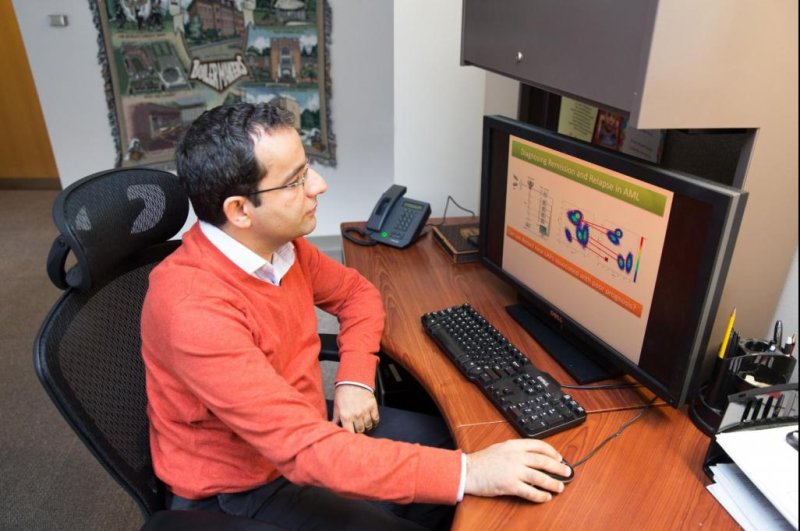Murat Dundar, PhD is an associate professor of computer science in the School of Science at Indiana University-Purdue University Indianapolis. He used a computer machine-learning model to predict outcomes in patients with acute myelogenous leukemia. Photo courtesy School of Science at Indiana University-Purdue University Indianapolis
Feb. 9 (UPI) -- Researchers from Indiana University - Purdue University Indianapolis School of Science have used a computer machine-learning model to accurately predict which patients with acute myelogenous leukemia, or AML, will relapse or go into remission.
"It's pretty straightforward to teach a computer to recognize AML, once you develop a robust algorithm, and in previous work we did it with almost 100 percent accuracy," Murat Dundar, associate professor of computer science in the School of Science at Indiana University - Purdue University Indianapolis and senior author of the study, said in a press release.
"What was challenging was to go beyond that work and teach the computer to accurately predict the direction of change in disease progression in AML patients, interpreting new data to predict the unknown: which new AML patients will go into remission and which will relapse."
The computer model used bone marrow data and medical histories from AML patients along with blood data from healthy individuals. The computer was able to predict remission rates with 100 percent accuracy and relapse with 90 percent accuracy.
"As the input, our computational system employs data from flow cytometry, a widely utilized technology that can rapidly provide detailed characteristics of single cells in samples such as blood or bone marrow," Bartek Rajwa, assistant professor of computational biology in the Bindley Bioscience Center at Purdue University and first author of the study, said in a press release. "Traditionally, the results of flow ctometry analyses are evaluated by highly trained human experts rather than by machine-learning algorithms. But computers are often better at extracting knowledge from complex data than humans are."
Researchers said automated measurement and monitoring of response is crucial for the timely assessment of treatment strategies for AML.
"Machine learning is not about modeling data," Dundar said. "It's about extracting knowledge from the data you have so you can build a powerful, intuitive tool that can make predictions about future data that the computer has not previously seen -- the machine is learning, not memorizing -- and that;s what we did."
The study was published in IEEE Transactions on Biomedical Engineering.















